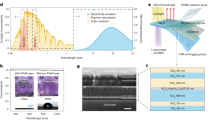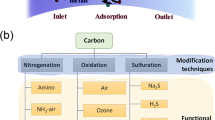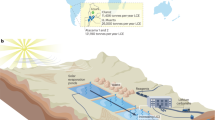Abstract
IT is well known that plants in water culture may absorb appreciable quantities of boron from glassware such as ‘Pyrex’ and ‘Hysil’, which contain borosilicates. The literature has been reviewed by Hewitt1 in relation to water culture techniques. The possibility of contamination resulting from the use of this type of laboratory glassware in preparing culture solutions has not, however, been generally recognized.
This is a preview of subscription content, access via your institution
Access options
Subscribe to this journal
Receive 51 print issues and online access
$199.00 per year
only $3.90 per issue
Buy this article
- Purchase on Springer Link
- Instant access to full article PDF
Prices may be subject to local taxes which are calculated during checkout
Similar content being viewed by others
References
Hewitt, E. J., Tech. Comm. 22, Commonw. Bur. Hort. Crops (1952).
Hatcher, J. T., and Wilcox, L. V., Anal. Chem., 22, 567 (1950).
Eaton, F. M., Bot. Gaz., 101, 700 (1940).
Author information
Authors and Affiliations
Rights and permissions
About this article
Cite this article
SELMAN, I., REES, J. & DILNOT, J. Liberation of Boron from ‘Pyrex’ and ‘Hysil’ Glass in Relation to Plant Growth in Water Culture. Nature 173, 957–958 (1954). https://doi.org/10.1038/173957b0
Issue Date:
DOI: https://doi.org/10.1038/173957b0
Comments
By submitting a comment you agree to abide by our Terms and Community Guidelines. If you find something abusive or that does not comply with our terms or guidelines please flag it as inappropriate.



